Broccoli Nutrition: Battle Cancer, Osteoporosis & Weight Gain
It’s no wonder, considering the fact that broccoli is vegetable royalty — loaded with cancer-fighting antioxidants, fiber, and numerous vitamins and minerals. What are some proven benefits of broccoli nutrition? It’s hard to know where to start!
Broccoli Nutrition Benefits
Broccoli was first cultivated as an edible crop in the northern Mediterranean region starting in about the sixth century B.C., and as far back as the Roman Empire, it’s been considered a uniquely valuable food when it comes promoting health and longevity. Research links broccoli and cruciferous vegetable consumption with loads of health benefits, including these:- Cancer prevention
- Lowered blood pressure and cholesterol levels
- Slowed aging
- Better teeth and gum health
- Better bone health
- Prevention of prematurely aged, irritated skin
- Better wound healing
- Better eye health
- Detoxified blood
- Liver protection
- Balanced pH level and regulated blood acidity
- Improved hormonal health and adrenal gland functioning
- Improved fertility
- Increased metabolism and better management of a healthy weight
- Better cognitive function, even into old age
Broccoli is a member of the brassica family of cruciferous vegetables — the same family that includes other greens like bok choy, cabbage, kale, Swiss chard and other life-saving veggies. These nutrient-dense vegetables are excellent sources of a family of phytochemicals called isothiocyanates. In addition to isothiocyanates, broccoli also contains sulforaphanes and indoles — two types of strong antioxidants and stimulators of detoxifying enzymes that protect the structure of DNA. (2)
Broccoli is also full of minerals and vitamins, like vitamin B6 that helps with heart and brain health. Broccoli nutrition benefits heart health by preventing heart attacks and strokes and keeping arteries clear, in addition to correcting high cholesterol and high blood pressure.
Broccoli even has benefits when it comes to your appearance. Broccoli’s high levels of vitamin A is necessary for skin health, eye health and even fertility. And a derivative of vitamin A found in broccoli, beta-carotene, is essential for liver health, immune functioning and has been shown to fight cancer.
Broccoli Nutrition Facts
Broccoli is technically an edible green plant in the cabbage family, which is part of the larger plant family called Brassica oleracea. Because it’s so tied to cabbage and has many of the same nutrition benefits, the word broccoli comes from the Italian plural of broccolo, which means “the flowering crest of a cabbage.”Apart from its demonstrated cancer-fighting abilities, broccoli is considered a nutritional powerhouse when it comes to supplying high levels of vitamins and minerals. As you can see below, broccoli is a naturally high source of dietary fiber, plant-based protein, vitamin K, A, C and more.
One cup of cooked broccoli has about: (3)
- 55 calories
- 4 grams protein
- 5 grams fiber
- 0 grams fat
- 100 micrograms vitamin K (276 percent DV)
- 101 milligrams vitamin C (168 percent DV)
- 120 milligrams vitamin A (48 percent DV)
- 168 micrograms folate (42 percent DV)
- 0.4 milligrams vitamin B6 (16 percent)
- 0.4 milligrams manganese (16 percent)
- 457 milligrams potassium (14 percent DV)
- 105 milligrams phosphorus (10 percent DV)
- 33 milligrams magnesium (8 percent DV)
- 62 milligrams calcium (6 percent DV)
7 Health Benefits of Broccoli
1. Fights Cancer
As you just learned, broccoli is one of the best natural cancer treatments and sources of isothiocyanate compounds that fight cancer by lowering oxidative stress, neutralizing carcinogens and battling toxins. (4) They do this by reducing the poisonous effects of toxins from a poor diet, environmental exposure, heavy metals and the aging process.Isothiocyanates work by stimulating the release of special “carcinogen killer chemicals” that speed up the removal of toxins from the body. Many studies show that high-antioxidant foods like cruciferous veggies inhibit cancerous tumor growth and stop DNA damage from occurring, so they’re known to significantly lower the risk of colon, prostate, gastrointestinal, breast, lung and other cancers.
In addition to offering high levels of isothiocyanates, broccoli nutrition is also valuable for cancer prevention because of high levels of a phytochemical called sulforaphane. This disease-preventing compound increases the activation of enzymes known as phase 2 enzymes that powerfully fight toxins in the body. (5) In fact, sulforaphane is the most potent inducer of phase 2 enzymes of any known phytochemical and helps reduce the risk of some of the deadliest forms of cancer, including prostate cancer.
Cruciferous vegetables are linked with a reduced risk of breast and cervical cancers, which makes them especially important for women. This is due to their effects on estrogen within the body: They increase the ratio of good estrogen metabolites (the kind that are not benign and not linked with cancer growth) but reduce the kind that’s potentially harmful. Men also naturally have lower levels of estrogen present in their bodies so broccoli helps prevent estrogen-related cancer for men, too.
2. Maintains Strong Bones
Broccoli is an excellent source of vitamin K, calcium, magnesium and potassium, which are essential for healthy bones, nails and teeth. High levels of vitamin K and iron are vital for maintaining bone mineral density (in addition to having many other benefits like promoting blood health and boosting your energy levels).Some even say that vitamin K builds bones better than calcium, and just one cup of broccoli provides over 270 percent of your daily vitamin K needs! There’s evidence in human intervention studies that vitamin K and vitamin D work together to positively impact bone metabolism and that a vitamin K deficiency or vitamin D deficiency increases risks for bone-related diseases. Vitamin K also positively affects calcium balance, a key mineral in bone metabolism. (6)
Calcium found in broccoli is also crucial for preventing calcium deficiency plus building and maintaining strong teeth and bones — especially into older age when people become more susceptible to bone breaks, fractures and bone density loss. If your body doesn’t get enough calcium, it steals calcium from your bones to help keep a steady amount in your blood, so including more broccoli in your diet is a natural osteoporosis treatment and prevention method.
3. Maintains Heart Health
Epidemiologic studies published in the American Journal of Clinical Nutrition readily show that higher fruit and vegetable intake, especially cruciferous veggie intake, is correlated with a lower risk of cardiovascular disease. (7, 8) The high-fiber content of broccoli is excellent for lowering cholesterol naturally and fast. It prevents cholesterol from entering your bloodstream by binding to it and removing it from the body.Sulforaphane in broccoli can also significantly improve high blood pressure levels as well as kidney function, while the compound called lutein present in broccoli can prevent thickening of the arteries and plaque buildup that can lead to cardiac arrest.
Broccoli also packs high levels of minerals important for reduced inflammation, fighting free radical damage and protecting cardiovascular health. These include calcium, potassium and magnesium. For example, it’s well-known that calcium plays some pivotal roles in keeping bones healthy and strong, but it also helps your blood to clot and keeps your muscles and nerves working properly.
4. Increases Gut and Digestive Health
In addition to promoting heart health, high-fiber foods also keep the digestive system flushed and healthy. Eating whole foods as part of a high-fiber diet promotes regular bowel movements; better gut and colon health; a more alkaline digestive tract (which boosts immunity); and prevention of constipation, IBS and other digestive disorders.Isothiocyanate sulforaphane compounds abundant in broccoli also powerfully fight against harmful bacteria within the gut and prevent oxidation than can lead to cancer within the digestive organs.
Studies conducted by the Division of Clinical Pharmacology at Tokyo University of Science found that when mice are fed diets high in broccoli, they experience reduced gastric bacterial colonization, lower expression of tumor growth and inflammation, and higher antioxidant activity that increases immunity. (9) Broccoli further supports the body’s natural detoxification processes due to its phytonutrients glucoraphanin, gluconasturtiian and glucobrassicin that aid in liver function and help cleanse the blood.
5. Maintains Eye Health and Vision
A lesser known benefit of broccoli nutrition is how it saves your eyes from age-related disorders. Broccoli positively impacts eye health thanks to high levels of the carotenoids called lutein and zeaxanthin, which are crucial for eye health and maintaining good vision into old age.They help protect night vision and stop UV damage from occurring within the eyes’ retina and cornea. A diet high in foods like broccoli that provide antioxidants, vitamin C and vitamin A is a natural treatment for macular degeneration, which is the leading cause of blindness in older adults.
6. Promotes Healthy Skin
Want to maintain healthy, youthful-looking skin even into older age? Eat more broccoli — thanks to it’s sulforaphane that helps repair skin damage, broccoli nutrition benefits the look, feel and health of skin.Its high levels of vitamin A and vitamin C prevent collagen breakdown, skin cancer, UV damage, wrinkles and skin inflammation.
7. Helps with Weight Loss
Broccoli is one of the most nutrient-dense foods on earth. One cup of cooked broccoli has just over 50 calories, but a good dose of fiber, protein and detoxifying phytochemicals. As a complex carbohydrate high in fiber, broccoli is a great choice for supporting balanced blood sugar levels, ongoing energy and helping you to feel full.Want to know a secret to losing weight fast? Including more high-volume. low-calorie, high-nutrient foods in your meals. Broccoli is high in volume due to having a high water content, so it takes up room in your stomach and squashes cravings or overeating without adding lots of calories to meals at all.
History of Broccoli
Broccoli has been eaten and valued among Italians for centuries. It’s native to the eastern Mediterranean and Asia Minor, and its history is linked with the Ancient Romans, who often sprouted and ate it with many types of meals. It was first brought to England in the mid-18th century and then was introduced to the United States by Italian immigrants, but it didn’t actually become widely known until the 1920s, which is surprising if you consider how popular it is today.Although it might be considered a newer vegetable, broccoli nutrition is now praised around the world, and it’s eaten as part of nearly every cuisine there is, from Indian and Japanese to American and French. Today, the largest producers of broccoli are China, India, Italy, Mexico, France, Poland and the U.S.
Many different types are eaten throughout the world, including Chinese broccoli and Rapini (called broccoli rabe in the U.S.). Other less common types include Tenderstem broccoli (which is a cross between broccoli and chinese broccoli) and Beneforté, which is a rare variety of cross-bred broccoli containing two to three times more glucoraphanin compounds than standard broccoli.
How to Buy and Cook Broccoli
It’s important to buy organic broccoli whenever possible — considering that the Environmental Working Group lists it as one of the most chemically sprayed veggies there is year after year. While you can always look for broccoli that’s raw and fresh at farmers’ markets and grocery stores, buying frozen organic broccoli is a good option too and can save you some money.The broccoli head or tree-like florets are the most popular parts to eat, but the entire stock of broccoli is edible and packed with nutrients. Many health experts recommend eating the stalks, since they can be considered a high-fiber food, along with eating the leafy greens attached to the stalks that hold high levels of nutrients.
Broccoli is perfectly edible raw, although it has the potential to cause stomach aches more so when it’s uncooked compared to when it’s cooked. Broccoli’s nutrients can be delicate to high-heat cooking, so it’s best to cook it at low temperatures and for short periods of time whenever possible.
Broccoli can easily burn and become water-logged when it’s overcooked — and we all know how unappetizing that can be. Some easy ways to cook broccoli until it’s just soft and its flavor enhanced is to sauté it with some olive oil on the stove for less than 10 minutes, quickly blanch it in some boiling water for several minutes or roast it for about 20 minutes in the oven.
You can also quickly steam broccoli in minutes by adding it to a large covered pot with a few tablespoons of water and letting it steam for four to five minutes or until tender (this is a great way to preserve a high level of nutrients).
Healthy Broccoli Recipes
How can you use broccoli at home in more recipes? Easy: Take advantage of all that broccoli nutrition has to offer by roasting it with some lemon and garlic to make a simple side dish, adding some to whole grain pasta or grain dishes, blending it into pesto and other sauces, topping a salad with some either raw or cooked broccoli, and adding “broccoli slaw” to sandwiches or tacos.Broccoli goes well with lots of different flavors and types of cuisines, and it can be eaten with breakfast, lunch or dinner. Try combining it with olive oil, garlic, tomatoes, onion, lemon, parsley, ginger, curry and other spices. It’s also beneficial to eat broccoli with some sort of healthy fat like olive or coconut oil, since certain vitamins are fat-soluble, meaning they’re digested and absorbed or transported in the body only with fat. These include vitamin A, vitamin D, vitamin E and vitamin K.
Here are some ideas for simple, healthy ways to use broccoli:
Broccoli Salad Recipe
Total Time: 5 minutesServes: 2–4
INGREDIENTS:
- 1 bunch broccoli
- 1/2 cup sunflower seeds
- 1/2 cup raisins
- 1/2 cup chopped green onions
- 3/4 cup vegenaise
- 2 tablespoons red wine vinegar
- stevia to taste
Mix all ingredients in a large bowl. Refrigerate before serving.

Raw Veggie Salad Recipe — a nutrient-dense salad made with a combination of different raw veggies, this one comes together in minutes.
Potential Concerns with Eating Broccoli
Some people are concerned about eating cruciferous vegetables and a connection to thyroid problems. Luckily, there isn’t much to worry about there, and according to the research, it would take a large amount of cruciferous vegetables to cause any type of hypothyroidism. It also appears to be a risk primarily for people who have an existing iodine deficiency.My advice if you have a thyroid issue is to consume cruciferous vegetables that have been cooked and to keep them to about one to two servings daily, but otherwise most people can greatly benefit from eating plenty of broccoli and other cruciferous veggies to their hearts’ content.
Read Next: 12 Benefits of Basil + Recipe Ideas
From the sound of it, you might think leaky gut only affects the digestive system, but in reality it can affect more. Because Leaky Gut is so common, and such an enigma, I’m offering a free webinar on all things leaky gut
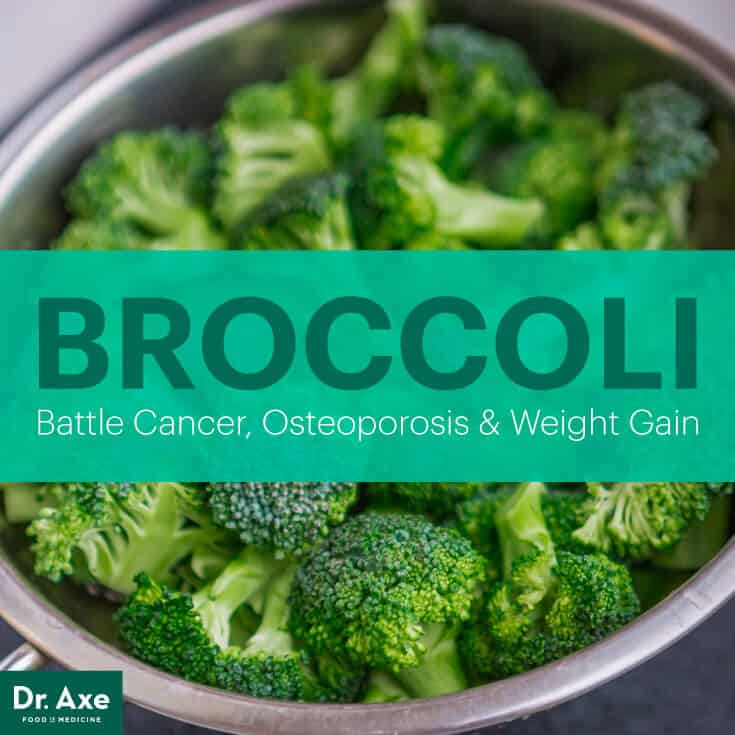

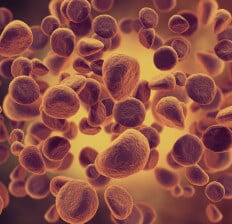
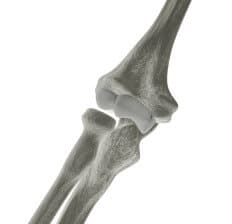
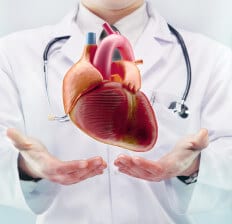
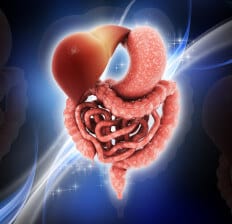



No comments:
Post a Comment